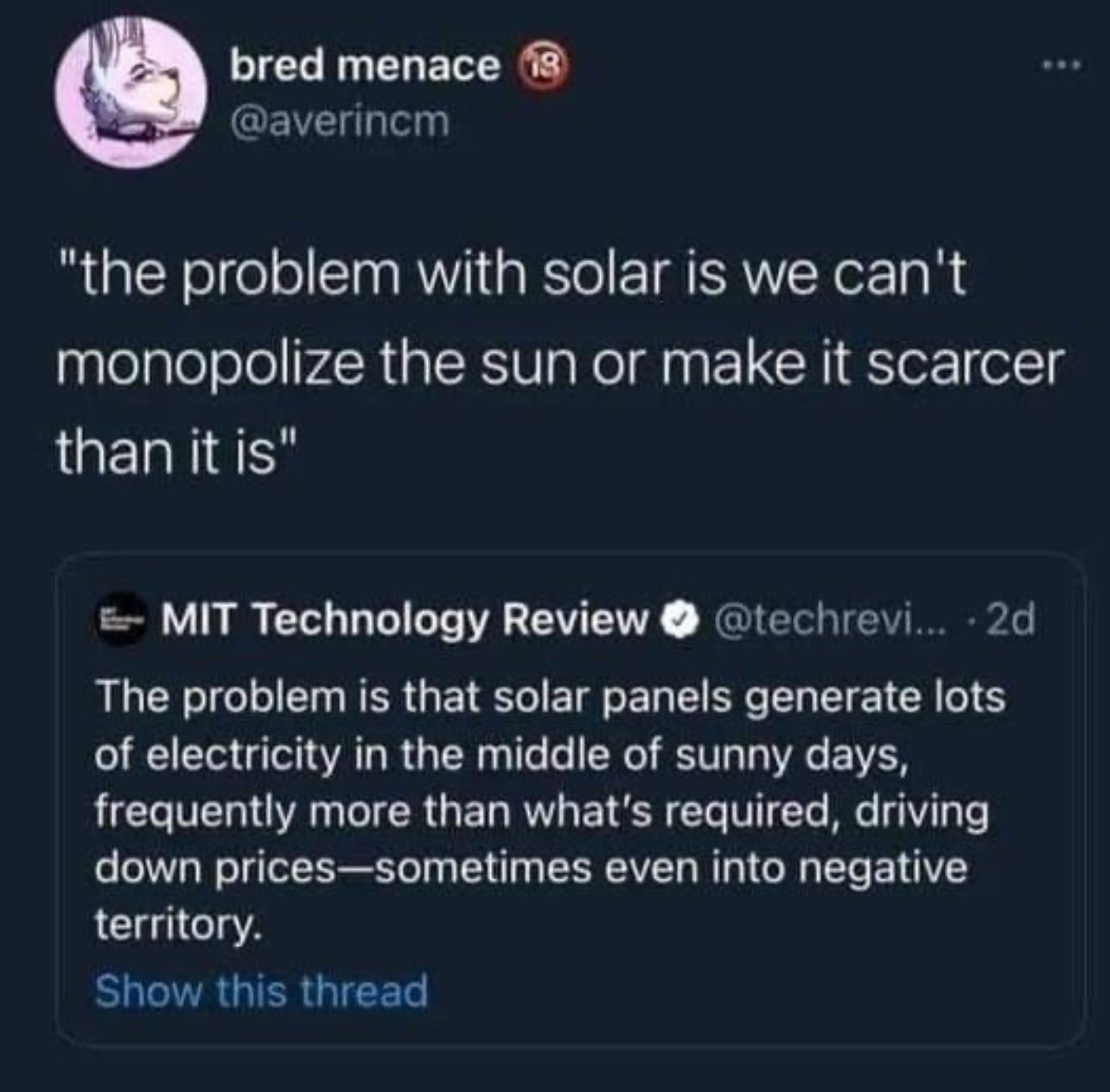this post was submitted on 02 Oct 2024
1702 points (95.6% liked)
Microblog Memes
6650 readers
3137 users here now
A place to share screenshots of Microblog posts, whether from Mastodon, tumblr, ~~Twitter~~ X, KBin, Threads or elsewhere.
Created as an evolution of White People Twitter and other tweet-capture subreddits.
Rules:
- Please put at least one word relevant to the post in the post title.
- Be nice.
- No advertising, brand promotion or guerilla marketing.
- Posters are encouraged to link to the toot or tweet etc in the description of posts.
Related communities:
founded 2 years ago
MODERATORS
you are viewing a single comment's thread
view the rest of the comments
view the rest of the comments

Logistical problems are still financial problems though. That's my point. Hire enough people/develop the appropriate automation and the issue is no more.
We have the technology to solve this, the problem is the money.
In fact, you could just buy enough batteries and the problem will also go away. Still a financial problem, not a technology one.
EDIT: just to clarify, if at some point energy prices go negative, it means that it is cheaper to buy energy usage than a solution. Unless the energy company is dumb enough to just lose money for the lazyness of considering other options.
You could spend the money, but you also need to consider whether that money is well spent. Batteries do not last forever. Maybe that money is better spent on R&D to develop better batteries first. Also natural resources and environmental impact needs to be considered. Batteries take natural resources to build and also occupies a lot of space.
20 years ago, we also have the technology to run AI workloads. Except we probably had to deploy billions of CPUs to match the capability of today's GPUs. We have the technology then, but it is not practical. And that money was much better spent in the R&D that lead to today's GPUs. So similarly our batteries probably needs to be a few magnitude better than what we have today before it is practical to use.